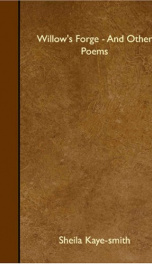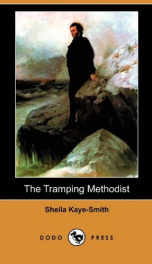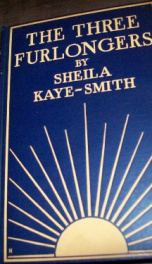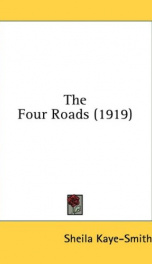sussex gorse the story of a fight

SUSSEX GORSE THE STORY OF A FIGHT BY SHEILA K AYE-SMITH New T rk Alfred A. Knopf 1933 SUSSEX GORSE CONTENTS fAGtt PROLOGUE. THE CHALLENGE i BOOK I THE BEGINNING OF THE FIGHT , , 22 BOOK II THE WOMANS PART , 78 ROOK III THE ELDER CHILDREN , ,120 BOOK IV TREACHERIES . . 192 BOOK V ALMOST UNDER , 243 BOOK VI STRUGGLING UF f , . 331 BOOK VII THE END IN SIGHT , . 382 BOOK VI I i THK VICTORY . 432 SUSSEX GORSE PROLOGUE THE CHALLENGE Si-TT OARZELL FAIR had been held every year on Jj Boareell Moor for as long as the oldest in Peas marsh could remember. The last Thursday in October was the date, just when the woods were crumpling into brown, and fogs blurred the wavy sunsets. The Moor was on the eastern edge of the parish, five miles from Rye, Heaving suddenly swart out of the green water-meadows by Socknersh, it piled itself towards the sunrise dipping to Leasan House, It was hummocked and tussocked with coarse grass here and there a spread of heather, growing, like aH southerly heather, almost arboreally, In places the naked soil in sores made by coney-warrens or uprooted bushes. Stones and roots, sham, shards, and lumps of marl, mixed themselves into the wealden clay, which oozed in red streaks of potential fraitfulness through their sterility. The crest of Boanselt was marked by a group of firs, gaunt and wind-bitten, rising out of a mass of goise, as the plumes of some savage chief might nod xnaogily above his fillet. When the gorse was in bloom t 2 SUSSEX GORSE one caught the flare of it from the Kentish hills, or away westward from Brightling and Dallington. This day in the October of 1835, the flowerets were either nipped or scattered, or hidden by the cloths tfce gipsies had spread to dry on the bushes. The gipsies always camped on the flanks of the Fair, which they looked on with greater detachment than the gaujos who crowded into its heart, either selling or buying, doing or being done. Just within the semi circle of their earth-coloured tents were the caravans of the showmen, gaudily painted, with seedy horses at tether, very different from the Romany gris. Then came the booths, stalls piled with sweets in an interest ing state of preservation, trays of neck and shoulder ribbons, tinsel cords, tin lockets with glass stones, all fairings, to be bought out of the hard-won wages of husbandry in love. Then there was the panorama, creaking and torn in places, but still giving a realistic picture of the crowning of King William there was the merry-go-round, trundled noisily by two sweating cart horses there was the cocoa-nut shy, and the fighting booth, in the doorway of which half-breed Buck Washington loved to stand and display his hairy chest between the folds of his dressing-gown and there was the shooting-gallery, where one could pot at the card board effigies of ones hates, Lord Brougham who had robbed the poor working man of his parish relief, or Boney, still a blood-curdler to those who had the building of the Martello towers. To-day business was bad. Here and there a plough boy pulled up his slop and fumbled for pennies in his corduroys, but for the most part the stalls were deserted even in certain cases by their holders, This was not because the Fair was empty. On the contrary, it was much more crowded than usual but the crowd clotted into groups, al discussing the same thiiig the PKQH GUE THE CHALLENGE 8 It was some months since Sir John Bardon, Squire of the Manor of Flightshot, had taken advantage of the Inclosure Act and manoeuvred a biE for the indosure of BoaxzeU. Since then there had been visits of com missioners, roamings of surveyors, deliveries of schedules, strange talk of turbary and estovers, fire-bote and house bote...
Info about the book
Author:
Series:
Unknown
ASIN:
B000HHFQO6
Rating:
4.5/5 (2)Your rating:
0/5
Languge:
English
Users who have this book
Users who want this book
What readers are saying
What do you think? Write your own comment on this book!
write a commentif you like sussex gorse the story of a fight try:
Do you want to exchange books? It’s EASY!
Get registered and find other users who want to give their favourite books to good hands!









